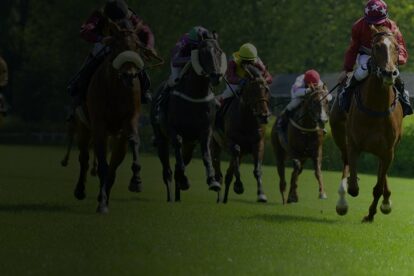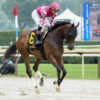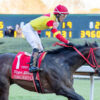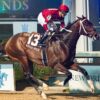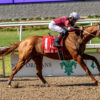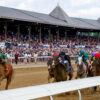Jumps racing is an entirely different beast to the track racing that we’re used to in the States. Watching thoroughbreds soaring over stiff fences of sometimes more than five feet tall is truly a sight to behold.
The Welsh Grand National takes things a step further and is one of the most testing events in the British National Hunt racing calendar. It’s held each year shortly after Christmas and has a prize pool of £150,000, making it the most competitive race in Wales. Understandably, there are a lot of trainers who would love to win the title, which makes the horse race betting markets difficult to work out.
When competition is high, the only thing for it is to look through methodically, horse by horse, and work out who really stands a chance. Thankfully, we’ve done that bit of the hard work for you. So, without further ado, these are the horses that we believe stand the very best chance of coming home first in the Welsh Grand National.
First, The Basics
Whilst plenty of people know all about the Grand National, far fewer know about the Welsh version. This race started in 1949 shortly after the war. It’s run in Chepstow and has been every single year since it first arrived. It’s run over a distance of three miles and six furlongs and has had some big surprises in its time. In recent years these have included the incredible win by Dream Alliance in 2009. This horse was bought as part of a syndicate that was dreamt up at a local pub.
Under the expert guidance of Phillip Hobbs and the expert horsemanship of Tom O’Brien, Dream Alliance sailed to victory and inspired so many people that not one, but two films were made to celebrate the plucky horse. Later on, in 2017, James Bowen broke the record for the youngest ever jockey to win the race at just sixteen years old.
Finally, after a gap that had been present since 1973, Potters Corner ended the drought of Welsh successes and was the first Welsh-trained horse to win since then. It remains to be seen whether we’ll find another Welsh success this year, but let’s have a look at the form.
Quick Wave
The horse that everybody seems to agree on for the win this year is Quick Wave, trained by Venetia Williams. This French-bred mare is nine years old and relatively lightly raced, having run just 18 races under rules in her six years on the track. She began her career in France where she chased for a couple of years but was always underwhelming. Venetia Williams picked up her training in 2018 and although the mare did seem to improve, the trainer always suspected she was capable of more. She achieved a handful of wins and places over the coming years, but her wind surgery in 2021 seemed to be the making of her.
Despite only having had two runs since then, one in January of this year and one just a couple of weeks ago, it would be fair to say that Quick Wave has finally hit her stride. She had an absolute nightmare of a race in January, where she was hampered terribly by a loose horse and jockey H Bannister was lucky not to be unseated.
Despite this, she managed to find a whole extra gear and romped home an incredible 14 lengths ahead of Legend’s Gold. Her next race would be the Winners Wear Cavani Menswear London National Handicap Chase that took place over a distance of three miles, six and a half furlongs.
This was her longest race yet and it certainly seemed that the distance suited her. She finished first, four lengths ahead of Planned Paradise and from the third fence from home it was clear that nobody would be heading her. With her huge improvement since the wind surgery and over longer distances, plus her careful jumping style and ability to avoid loose horses, there’s a whole lot to like about this mare.
Ask Me Early
It seems as though this year, the Welsh Grand National is going to be a two-horse race. Quick Wave should, according to form, be the winner. However, Ask Me Early, the beautiful eight-year-old grey gelding from Harry Fry’s yard has been in training for this race for years. He missed the race last year after a heavy fall at home meant the trainer thought he needed time off to recover.
This year he’s had a couple of disappointing results, where he unseated his rider and came third at Bangor. The field at Bangor was a strong one, but both races were over a considerably shorter distance than the Welsh National, so the pace may have been too testing.
Interestingly, he’s never lost a race at Chepstow, so is clearly a horse that knows the course well and enjoys it. It remains to be seen whether he can keep up his winning streak.

